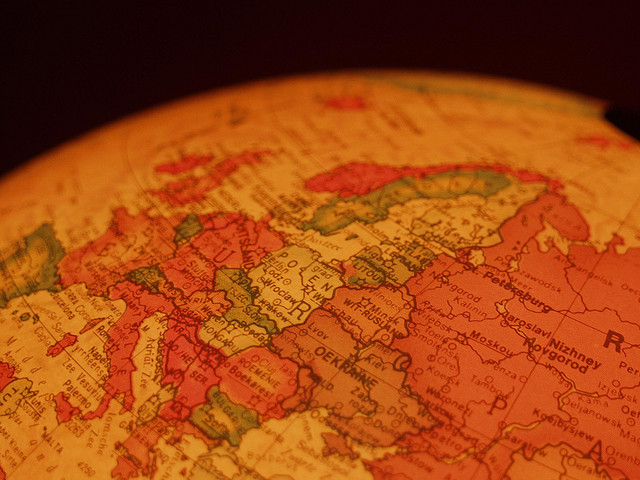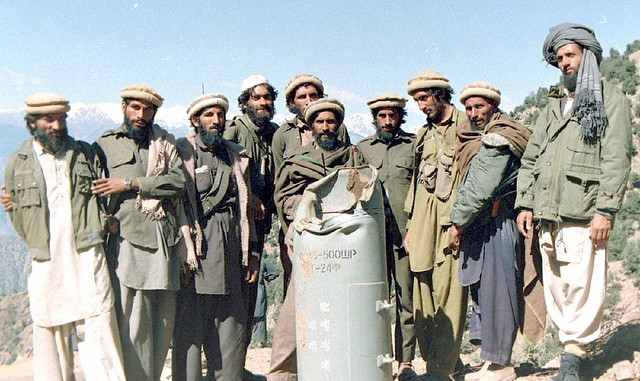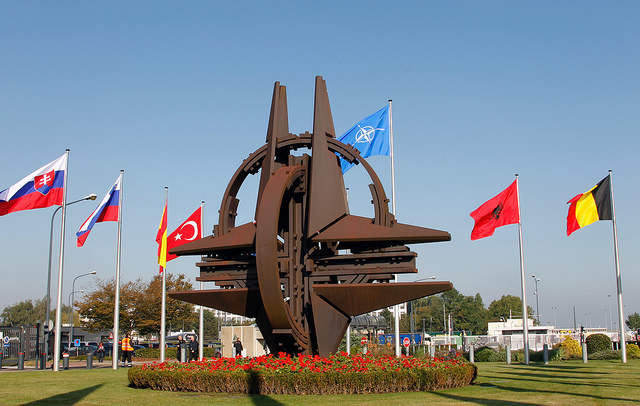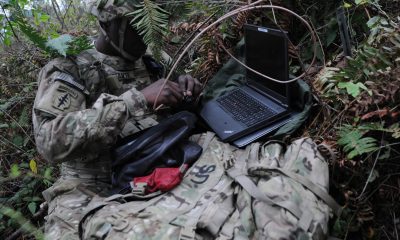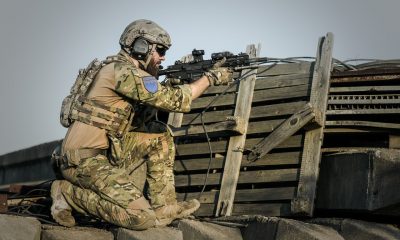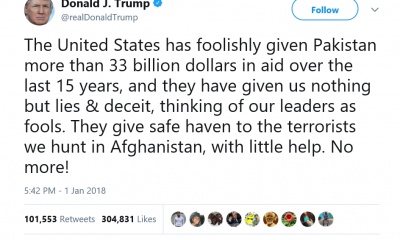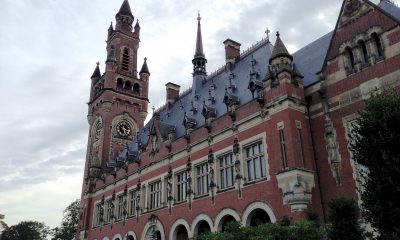Opinion
The Facelift of Global Security and Non-State Actors
Article co-authored with Svetlana Izosimova, Master’s student of International and European Relations at Linkoping University, Sweden.
Since the two World Wars and the end of Cold War, the concept of international security has become more complex and wide. Back then, international security was largely focusing on such fields as national-state security policy, strategic studies, defense studies, military studies, war studies, etc. The era of globalization created a context for the transformation of the international security studies arrangements. Today this field includes an increasing number of studies on economic security, human security, environmental, resource security and HIV/AIDS as a security issue.
Globalization and International Security Studies
The notion of the state as the primary unit of interest has similarly changed. Globalization may exert influence upon global security through different means: producing economic changes, technological development (particularly involving communications and transportation) and border reduction (reflected in trade flows in goods, cross-border travel). Reaction to globalization may lead to a reassessment of key security threats and bringing in new actors.
More specifically, economic disparity and inequality cultivates social polarization and ends in protests and social unrest, international terrorism and civil wars. Cheap and fast access to advances in computers, communications and software leads to cybercrime and diffusion of power. The elimination of geographical borders, once heavily guarded, moved such dangers as organized crime and the possibility of weapon proliferation to the new level.
Globalization transforms patterns for interdependence and cooperation by changing the environment under which nation-states operate. The key point is that globalization reduces the ability of states to unilaterally protect themselves in terms of responding to specific security threats which result from greater openness. The need for states to cooperate in managing the threats increases.
Change in the quality of threats
Traditional state-centric views of military security are challenged by globalization responsible threats. Almost none of these contemporary security threats are “new.” Concerning terrorism, proliferation, and civil war, they have existed as national threats since the 1940s.For example, in the nineteenth century, terrorism was used by anar chists and transnational revolutionaries who killed half of the heads of state. In the twentieth century, World War I was triggered partly by such a terrorist-turned-assassin. It can be argued that with the spread of globalization and interdependence not only has the amount of transnational threats increased but they are of a new quality and type.
The ability to cross national boundaries with little hindrance undermines the security idea established by a system based on sovereign nation-states. All of the mentioned threats, from civil war, terrorism, transnational crime, the proliferation of small arms, to HIV/AIDS are transnational. Using the same technologies and means of transport that have benefited globalization, these transnational security threats in fact do not target states but societies and individuals.
Another main feature that illustrates the quality change among security threats is the probability. In comparison with interstate war, civil conflicts have not only been on average about five times more frequent but the number of internal conflicts has also been steadily increasing since the end of World War II, while the occurrence of intrastate war has been relatively stable.
In addition, the new security threats are more diverse in terms of their scope and intensity. Intrastate wars can last for decades and might not involve a clear beginning and end point. Many such conflicts start with very low levels of violence, or they might involve long periods of low violence where it may seem that no war is taking place. The recently ended intrastate conflict in Sri Lanka, for example, lasted for over 25 years. Many such wars therefore are very ambiguous in terms of measuring precisely when they start or finish, or how they might shade into acts of terrorism, insurgency, genocide, organized crime, violence, or even interstate war.
Emergence of new actors
Globalization provides international actors with additional tools for enhancing their interests and power. More actors which assume the shape of threats are actively and directly involved in everyday international affairs. That is why extremist and terrorist ideological groups for example achieved the ability to manipulate an audience by cultivating fear on the global scale. Rebel or resistance movements, warlords, criminal organizations, local militias, ethnic groups, and many other forms of armed opposition act on both national and international levels. The prefer ences and interests of these groups can vary widely from political goals to profit-making.
Nevertheless, non-state actors have not only contributed to the emergence of new security threats such as terrorism and transnational crime but they also play an important role in conflict managing and provision of security. Non-state actors included into patterns of interstate relations can be grouped into the categories of private actors and intergovernmental organizations. The former includes such actors as private companies, charities, local pressure groups, as well as national and international NGOs. The latter refers to multilateral institutions formed by sovereign nation-states.
What makes the mentioned actors “new” in contemporary security is that they are challenging the role of the nation-state. States no longer own the ‘monopoly’ on the legitimate provision of security. Moreover, some of these actors lay claim to a higher legitimacy than states because they are not operating in the interest of a single nation. With the increased complexity of the international system, the task of providing security became complicated. A system based on national sovereignty can be rather ineffective when it comes to tackle transnational challenges. Thus, non-state actors appear to be more suited for addressing contemporary threats because they can operate across boundaries by building on multilateral cooperation.
To be more precise, sovereignty is not lost but transferred from national to other levels: supranational and regional. States still play the central role in providing security. The changing nature of the global arena requires though a reconsideration of a exclusive state-centric approach in international security. This reconsideration can be observed in the fragmentation of political authority among governmental and nongovernmental actors.
The fragmentation of political authority is characterized particularly by the delegation of security functions from the state to such organizations as NATO and the European Union on the regional level, and on the global level to such actors as the United Nations or to private actors such as NGOs and private security companies. The functions and policy-making arrangements can be spread between all the actors. For instance, in the conflict with former Yugoslavia the United Nations and NATO provided military security, while NGOs dealt with humanitarian aid, and private security companies offered logistical support.
For the last decades non-state actors have proved their significance and expanded their contribution to security policies. NGOs have become key actors in the provision of human security during conflicts. Private military companies increasingly offer military support services for national armed forces. International organizations, such as NATO and the European Union, have extended their functional and geographical scope and address a new range of security threats.
Conclusion
Globalization posed a new challenge to international security studies. During the recent period the meaning and nature of primary national and international security threats have changed. A multitude of threats, such as terrorism, the proliferation of weapons of mass destruction, civil war, HIV/AIDS danger, ethnic conflict together with an increase in the number of non-state entities characterizes the world today. The state as the central focus of security studies found itself in the complex interdependence with various other international actors. While states continue to play a central role at the national level, they have to share authority in the formulation, implementation and monitoring of international policies, rules, and regulations with international organizations, NGOs and multinational corporations at the regional and international levels for the purpose of achieving international security. Moreover, the changing nature of threats and actors is making the concept of security more profound and wide by bringing it from the level of the state to societies and individuals and shifting from military to non-military issues.
References:
- Kapitonenko, Mykola. Globalization, Nation-state, and Global Security, Arrangements. Europolis, 2009, Issue 6, p585-603
- Krahmann, Elke. New Threats and New Actors in International Security. Gordonsville, VA, USA: Palgrave Macmillan, 2005
- Nye, Joseph S. The Future of Power. New York: Public Affairs, 2011
- Smith, Michael E. International Security: Politics, Policy, Prospects. Basingstoke: Palgrave Macmillan, 2010
China
Nepal Hindu Rashtra: Time to Wrap Up Communism?

Nepal abolished the Constitutional Monarchy in May 2008 and declared itself as a Federal Democratic Republic. There was a new hope in Nepal as it was becoming world’s newest democracy even though it had dissolved the Hindu Rashtra. However, the democracy in Nepal immediately got into the tight grips of leftists and communists backed by China. It has been almost 12 years since monarchy was abolished in Nepal. Interestingly, the Himalayan country has already seen 11 Prime Ministers in this period. Thus, leaving the Nepalese people still yearning for good and stable governance.
Re-establish Hindu Rashtra
As the political instability is growing in Nepal, people are demonstrating concerns about the future of the country. In fact, Nepalese citizens are unhappy with frequent interference by China and India influencing its unstable communist regime. More voices are now growing in support of reinstating the Monarchy and declaring Nepal as world’s only Hindu Rashtra (which by default offers full religious freedom to other religious minorities as per Hindutva concept of Sarva Dharma Sama Bhava – all paths lead to one).
Former Deputy Prime Minister of Nepal, Kamal Thapa said that if political parties do not recognize the seriousness of reinstating the monarchy, then the country will head for a period of darkness. “Recently, we’ve had high-ranking officials from India and China come to Nepal to try and solve problems within the ruling party,” he said. “We cannot let others dictate what we want to do.”
Communist Party All Set to Suppress Protests, By Force
Kamal Thapa has firmly demanded an all party meet to discuss reinstating of monarchy. Throughout the month of December, 2020 Nepal has seen anti communism protests across the country in support of reinstating the monarchy and Hindu Rashtra. Most importantly, the demand has become a nationwide mass people’s movement. So much so that the communist regime had to send a directive to 77 districts in 7 provinces. The directive suggests suppressing the protests by force. Nevertheless, Rashtriya Prajatantra Party and other royalist groups have ignored this threat from the communist regime. Protester groups have pledged to strengthen the protest in the coming weeks.
Nepal: Demonstration held in capital Kathmandu, demanding restoration of monarchy in the country. pic.twitter.com/TFjmKu9U9Z
— ANI (@ANI) December 5, 2020
Role of China – Hope for Communism in Nepal
China’s ambassador to Nepal is known to have very close relationship with Nepalese Communist regime. In fact, She has been super effective in tilting Nepal’s posture towards its ideological partner, China. One of her greatest achievements in 2020 was artificially manufacturing a border conflict between Nepal and India. Consequently, souring relations between the two Hindu majority nations. In addition, she managed to silence Nepal’s communist government after China took one of Nepal’s border villages under its control. However, recent political turmoil in Nepal and a renewed demand for reinstating of Hindu Monarchy is showing that the situation is now out of Chinese hands
Role of India
Year 2020, was not a good year for India and Nepal relations. India was busy in controlling domestic Covid cases. On the other hand, China had launched an invasive campaign into Indian territory. In addition, India is always busy with Pakistan on its western borders. However, the surprise came to India when China was almost successful in creating a new border tension between India and Nepal.
Those who do not know about Indian government should note that the current ruling party in India finds itself ideologically opposite to communism. This further creates differences between the two countries.
Communist party in Nepal has blamed India for supporting the ongoing anti communism protests in Nepal. However, former advisor to Nepal’s PM has suggested there is no proof that India is fueling pro Monarchy, anti communism demand in Nepal.
Nevertheless, There are certain influencers in India who have, in their personal capacity, expressed support for reinstating the Hindu monarchy. Yogi Adityanath, who is the Chief Minister of an Indian state bordering Nepal, said in 2015 that Nepal should declare itself a Hindu Monarchy. Readers should note that in 2015 Yogi Adityanath was not the Chief Minister yet. However, today he is not only popular in south of Nepal, his popularity is growing in Nepal as well.
Will The World See the first Hindu Rashtra?
It is difficult to answer this question at this moment. However, Nepalese communist government could not resolve the political instability and in December 2020 Nepalese government dissolved the parliament. Nepal will see next elections in April – May 2021. Hopefully, the world will see Nepal’s 12th Prime Minister in 13 years or may be a Hindu King? Royalists and protester groups have expressed confidence in winning next elections. We have our eyes on Nepal for updates.
Opinion
America’s Justice System – The Need For Reform
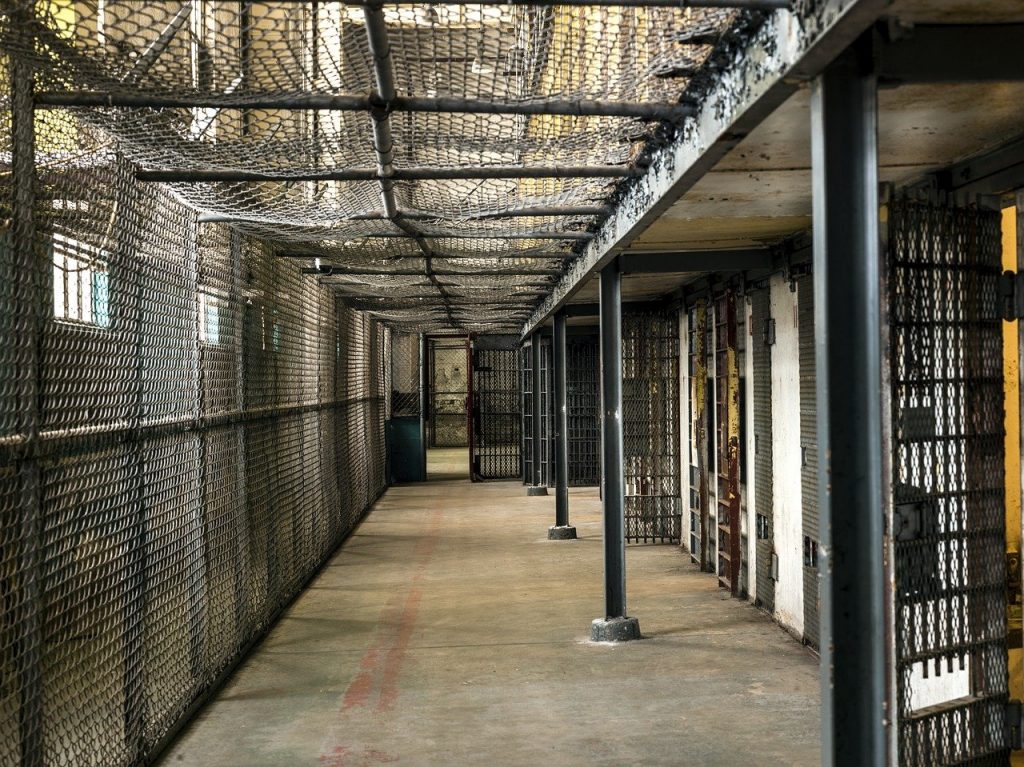
A recent poll by the National Opinion Research Centre revealed that 95% of Americans favour vital criminal justice reforms. This is hardly surprising, given that several people of varying racial, partisan and ideological dispositions have called out the justice system over its many failures throughout the years. Most Americans received the Trump Administration’s First Step Act as a step in the right direction, as about 60% of people approved the criminal justice reform bill according to a 2018 poll. However, many people still believe the justice system’s approach to crime is ineffective and needs dire change, and these are some reasons why.
Prison population and funding concerns
Research conducted revealed America has about 2.3 million prisoners, making the US the country with the highest incarceration rate globally. Experts estimate that the country’s prison population has grown by a whopping 340% over the past three decades; new prisoner admissions into jails are higher than prisoner release numbers. The cost of maintaining the nation’s prisons at taxpayers’ expense has inspired a lot of backlash and calls for budget cuts. According to research, slashed correction spending was the preferred option by most states to balance their budgets and redirect spending to other areas.
Minimum mandatory sentences
Minimum mandatory sentences are statutes that force judges to give defendants convicted of a crime the minimum prison sentence. Mandatory sentences rob judges of the traditional way of considering the defendant’s character and the unique circumstances surrounding offences. Even when represented by criminal defense attorneys with many years’ experience, defendants often succumb to prosecutors’ pressure to plead guilty or face more severe charges with higher mandatory sentences. The guilty plea bargain consequently resolves about 95% of both federal and state court cases. Research also shows that about half of inmates in federal prisons are doing time for drug offences- causing overpopulation in the prison system.
Growing number of people killed by the police
An estimated 1000 civilians are killed by police officers annually in the US. The frequency of police brutality cases over the years requires immediate reform to the American justice system. Data suggests that the incidence of fatal police shootings is higher among African-Americans than any other ethnicity, inspiring movements like the ‘Black Lives Matter’ campaign to press on with protests for significant police etiquette reforms towards coloured minorities. The police force faces incessant accusations of racial profiling, indiscriminate use of power, and poor discretion, which has led a reported 58% of Americans to think policing needs major reforms through measures like better-trained officers, and wearing body cameras.
Evolving public opinion on crime
Research released by the Sentencing Project and The Justice Policy Institute reveals that more people in conservative states are embracing preventive, rehabilitative, and alternative sentencing options for non-violent offenders. Most Americans now view the prevention of crime as the most vital function of the justice system, as 77% of Americans think that focusing more on character education and after-school programs would be cost-effective by reducing the number of people going to jail. Almost two-thirds of Americans also believe in the need for lighter sentences with more useful, reformative programs in prisons that will benefit inmates upon release. Therefore, support for harsh penalties that harden criminals and make them a more significant menace when reintroduced into society has dwindled.
Opinion
The History Question: Is It Better to Remember or to Forget?
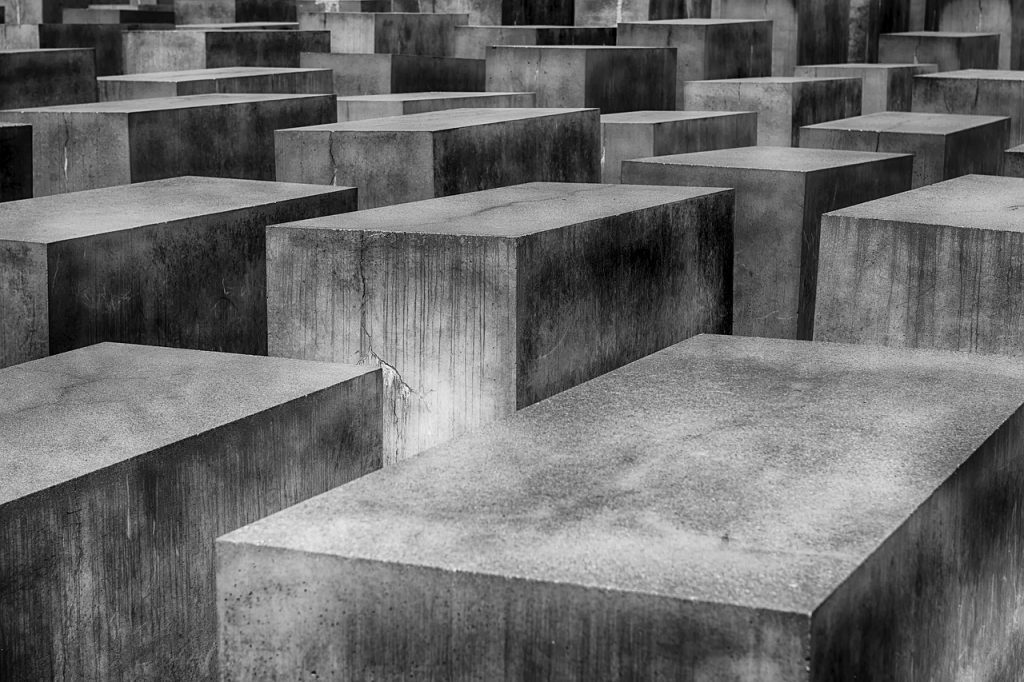
Years ago, a philosopher by the name of George Santayana said a phrase that fuels many debates to this day. His original saying is “those who cannot remember the past are condemned to repeat it”, although, many sources now present it as variations of “those who cannot learn from history are doomed to repeat it”. The latter definitely has more substance to it in the light of the ongoing debate about how much history we should be learning and how.
Is It Better to Remember or Forget About the Past?
On one hand, Santayana was right. Learning about the past is essential in order for people to progress. One also shouldn’t overlook the importance of remembrance and paying respects to the dead, both those who pushed the progress forward and those who have fallen victims to major tragedies that could and should have been averted.
The main argument in favor of learning about the past is that its knowledge is necessary for preventing the same thing happening in the future. Having it one can see the signs and stop the tragedy before it gains momentum.
That’s sound in theory, but the reality is always different. For example, today people are surely forgetting, and the much-critiqued education system is only partially at fault here. Even the greatest of tragedies weren’t spared this fate. It’s a proven fact that about two-thirds of millennials today don’t know about the Holocaust, and this number is surely greater for generations that follow them. In the school history course, the subject of one of the greatest disasters in history is barely touched, if touched at all. And outside of a history classroom, one can only see small, but terrifying, glimpses of it at the Holocaust Museum and other museums that rarely attract many visitors. And now we are witnessing a rise of antisemitic crime.
Are these two facts related? Does the lack of awareness about the horrors done in the name of Aryan supremacy contribute to the fact that right-winged extremists seem to be gaining popularity again?
It does, but by how much? That is the question that no one can truly answer.
And what about other genocides? The Holocaust had the highest death toll, but it was far from the only genocide in history. And quite a few of those happened after World War 2 and before the memory of the atrocities against the Jews began to fade. This means that while forgetting history is a factor, it’s not the deciding factor in its repeats.
But what is that thing responsible for the reenactment of past mistakes and tragedies?
Learning. This is the important thing that is most often overlooked when citing Santayana’s famous saying. It’s not enough to learn about the past and know the facts of things that happened. It’s important to learn from those facts and put in place protections that will prevent them from happening again. And this is something that humanity, as a whole, has yet to succeed in doing.
Dwelling in the Past Can Be Just As Bad
One also shouldn’t forget that there is such a thing as “too much history”. The Bosnian War and genocide that happened there in the 1990s is a vivid example of how the past can be exploited by political powers. Used as a part of propaganda, which fueled the war, history can become a weapon in the hands of those who want to use it for their own goals.
And this is what humans have been doing since the dawn of time. There is always someone who will use any means necessary to achieve whatever it is they wish. This results in wars and genocides, and hundreds of smaller but no less devastating tragedies.
Therefore, the problem isn’t whether people should be learning history but human nature itself. Perhaps, teaching this can help fix this fundamental flaw and truly stop the worst of the past from repeating.
-

 Technology12 months ago
Technology12 months agoHow Virtual Fly Elevates the World of Flight Simulators
-

 Travel12 months ago
Travel12 months agoImmerse Yourself in Nature: Explore Forest Bathing with a New Guidebook
-

 Europe12 months ago
Europe12 months agoBarcelona and Athens: cities that will leave an everlasting impression
-

 Health12 months ago
Health12 months agoExperience in clinical quality: What is it, and why is it important?
-

 Travel9 months ago
Travel9 months agoEnjoy a luxury holiday in Zanzibar
-

 Culture and Lifestyle8 months ago
Culture and Lifestyle8 months agoDo you want to surprise a special someone?
-

 Business8 months ago
Business8 months agoServiceNow Development Consultancy: Business Process Automation as Disruptive Technology
-

 Environment8 months ago
Environment8 months agoThe Future of Fashion: The Rise of Eco-Conscious Brands in the Luxury Market

